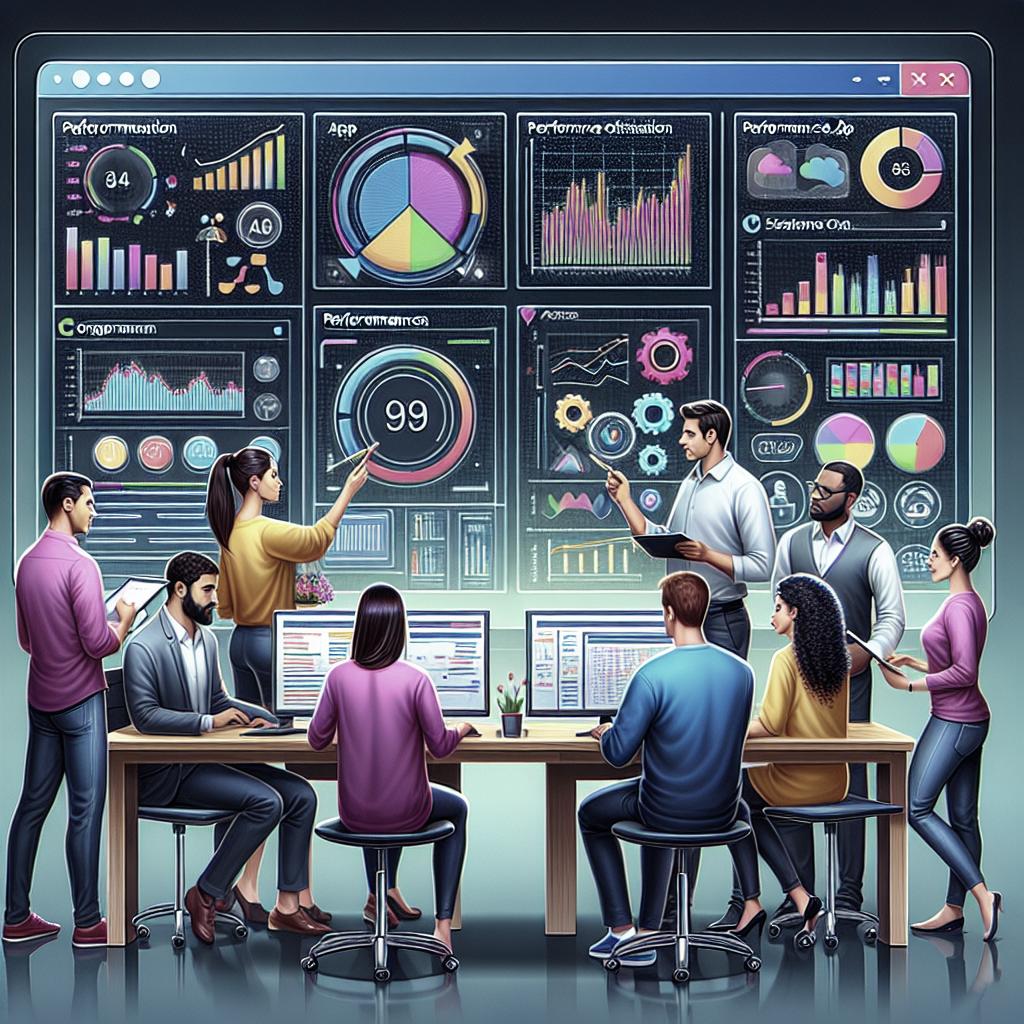Enterprise Mobility Management Trends
Enterprise mobility is revolutionizing workplace ecosystems by enabling employees to operate efficiently across devices and platforms. As companies recognize the strategic significance of mobility, they are embracing enterprise mobility management (EMM) solutions to streamline operations and enhance security. Key industries like healthcare and fintech are at the forefront of this transformation, heavily influenced by trends such as 5G adoption, artificial intelligence, and data-driven decision-making. This blog explores how mobility trends shape these industries, the anticipated future of enterprise mobility, the integration of mobile solutions in electronic health records, and how companies can address data security concerns effectively.
What Is Enterprise Mobility?
Enterprise mobility refers to the trend of providing employees with the freedom to work from anywhere using an array of devices and applications. It’s driven by the proliferation of mobile devices and cloud technology, which enable seamless communication, collaboration, and access to company resources.
This movement has reshaped the business landscape, enhancing productivity while also posing challenges related to security and data management. Companies are increasingly adopting mobility strategies to bolster operational agility and maintain a competitive edge in a rapidly changing market environment.
Enterprise Mobility Management Explained
Enterprise Mobility Management (EMM) encompasses the tools, processes, and policies needed to manage and secure mobile devices, applications, and data. It aims to optimize workforce productivity while protecting sensitive information against cyber threats.
EMM solutions typically combine Mobile Device Management (MDM), Mobile Application Management (MAM), and Mobile Content Management (MCM) to provide comprehensive oversight, allowing companies to monitor device usage, enforce security protocols, and ensure compliance with industry regulations.
How Enterprise Mobility Trends Impact Key Industries
The Influence of Mobility on Healthcare
In healthcare, mobility is transforming patient care by enabling real-time access to medical records and facilitating telemedicine services. Healthcare professionals can retrieve and update patient data on-the-go, resulting in improved patient outcomes and streamlined workflows.
Moreover, mobile technologies enhance healthcare delivery by supporting remote monitoring and data sharing, crucial for managing chronic conditions and enhancing the reach of healthcare services to underserved areas.
How Mobility Influences B2B Fintech Trends
In the fintech sector, enterprise mobility drives innovation by enabling secure transactions and fostering customer engagement through mobile-friendly platforms. Companies leverage mobile applications to deliver seamless, user-centric financial services.
As businesses continue to prioritize digital transformation, mobility’s role expands, underpinning developments in blockchain technology, peer-to-peer payment systems, and decentralized finance models that are reshaping traditional financial services.
The Future of Enterprise Mobility: Trends for Healthcare and Fintech To Expect in 2025
Widespread Adoption of 5G Technology
The rollout of 5G technology is expected to significantly impact enterprise mobility by enhancing data speeds and reducing latency. This will facilitate the development of more sophisticated mobile applications and improve the quality of services like telemedicine and real-time financial transactions.
With 5G, companies can harness higher data bandwidths to support innovations such as augmented reality (AR) and virtual reality (VR), opening new opportunities for training, remote assistance, and immersive customer experiences.
Increased Integration of Artificial Intelligence
Artificial intelligence (AI) is increasingly being integrated into mobile platforms, offering advanced analytics and automation capabilities. In healthcare, AI can assist with diagnostics, patient monitoring, and predictive analytics to enhance personalized care.
In fintech, AI-driven solutions optimize processes such as fraud detection, customer service automation, and investment advice, helping companies to deliver faster and more personalized services.
Enhanced Interoperability
Enhanced interoperability is a crucial trend, especially in healthcare, where seamless data exchange between systems is vital for efficient patient care coordination. Advancements in API technology and standardized data formats are driving this shift, allowing disparate systems to work together more effectively.
For fintech, interoperability facilitates better collaboration between financial services, enabling integrated solutions that streamline operations and enhance user experiences across platforms.
Focus on User-Centric Design
User-centric design is becoming paramount as organizations prioritize the experience of end-users. In healthcare, intuitive interfaces ensure that medical professionals can easily access and input data, reducing errors and improving the quality of care.
In the fintech realm, user-centric applications foster engagement and loyalty, with seamless interfaces and responsive designs becoming standard expectations among consumers.
Security Measures
With mobility comes heightened security risks, necessitating robust security measures. Encryption, authentication protocols, and stringent access controls are critical to safeguarding sensitive information.
Organizations must also anticipate growing regulatory demands around data privacy, making security an integral focus of any enterprise mobility strategy moving forward.
Expansion of Remote Services
The shift towards remote services has accelerated across industries, driven by technological advancements and evolving market demands. In healthcare, telehealth makes it possible to deliver comprehensive care to patients regardless of geographic barriers.
For the finance sector, remote banking and virtual advisory services are becoming increasingly commonplace, offering customers the flexibility and convenience of handling financial matters from any location.
Data-Driven Decision Making
Data-driven decision-making is becoming standard as companies leverage data analytics to gain insights and optimize operations. In healthcare, analyzing patient data is key to developing effective treatment protocols and improving care delivery.
In fintech, data analytics fuel personalized financial products and services, providing a substantial competitive advantage in an industry driven by consumer preferences and rapid technological changes.
Sustainability Initiatives
Sustainability is an emerging focus in enterprise mobility strategies, with organizations recognizing the need to reduce their environmental impact. Energy-efficient technologies and cloud-based solutions play a pivotal role in minimizing the carbon footprint of mobile strategies.
Companies in both healthcare and fintech are striving to implement sustainable practices, contributing to broader industry standards and corporate responsibility objectives.
Integrating Mobility into an EHR Solution for Real-Time Patient Updates
Offline Functionality
Offline functionality is crucial for EHR systems where reliable internet access cannot be guaranteed. This ensures that healthcare professionals can continue to use applications and access crucial patient data even without a network connection, with updates synchronized once connectivity is restored.
Quick Access to Patient Information
Quick access to comprehensive patient records is a key advantage of mobile EHR solutions, enabling healthcare providers to make informed decisions on the go. This immediacy improves the quality of patient care and enhances efficiency in clinical settings.
Instant Notifications
Instant notifications alert healthcare professionals to critical updates, new test results, or urgent care requirements, ensuring timely interventions and enhanced patient management.
Easy Data Entry
Streamlined data entry on mobile devices simplifies record-keeping tasks, enabling doctors and nurses to efficiently log patient information and care activities, thus freeing up more time for patient care.
Patient Engagement
Mobile-enabled EHR systems facilitate better patient engagement, allowing patients to access their medical records, receive health information, and communicate with providers from their mobile devices.
Data Insights and Analysis
Advanced data analytics capabilities integrated into mobile EHR solutions provide valuable insights for healthcare decision-making, supporting proactive patient care and operational improvements.
The Future of Electronic Health Records: Addressing Data Security Issues Related to Mobility
Use Strong Encryption
Encryption is essential for protecting patient data stored and transmitted across mobile platforms. Strong encryption algorithms ensure that sensitive health information remains secure against unauthorized access.
Implement Multi-Factor Authentication
Multi-factor authentication adds an additional layer of security, verifying user identity through multiple factors before granting access to critical systems and data.
Conduct Regular Security Audits
Regular security audits help identify vulnerabilities within mobile EHR systems, enabling organizations to fortify weak points and ensure compliance with security standards.
Train Employees on Security Best Practices
Employee training on security best practices is vital to prevent data breaches. Ensuring that all staff are aware of risk mitigation strategies and policies can greatly reduce the likelihood of human error compromising data security.
Monitor Access Logs
Monitoring access logs is a key security practice that aids in detecting unauthorized access attempts and identifying unusual behaviors that could signal a potential data breach.
Use Secure Communication Channels
Using secure communication channels, such as encrypted messaging and email services, is crucial for maintaining data confidentiality and integrity during exchanges between healthcare providers and patients.
How Jelvix Helps Develop and Integrate Enterprise Mobility Solutions
Need a qualified team of developers?
Jelvix is a leading provider of customized enterprise mobility solutions, assisting businesses in implementing robust mobile strategies that enhance productivity and security.
Our experienced developers work closely with clients to design and deploy tailored solutions that integrate seamlessly with existing systems, ensuring optimal performance and user satisfaction.
Subscribe to our newsletter
Read Next
- How To Scale Infrastructure for Your Business: Proven Strategies
Have a question?
Contact us for more information about how enterprise mobility can transform your business and to learn more about our services.
Next Steps
| Topic | Summary |
|---|---|
| Enterprise Mobility Management | Explore the significance and impact of EMM on productivity and security within organizations. |
| Mobility Influences on Industries | Examine how healthcare and fintech sectors are transformed by mobile technologies. |
| Future Mobility Trends | Identify key trends expected to shape enterprise mobility in the upcoming years. |
| Mobile Integration into EHR | Learn about integrating mobility into EHR solutions for enhanced patient care. |
| Data Security in EHR | Address the critical data security challenges related to mobile EHR deployments. |
| Jelvix Solutions | Discover Jelvix’s expertise in developing bespoke enterprise mobility solutions. |


